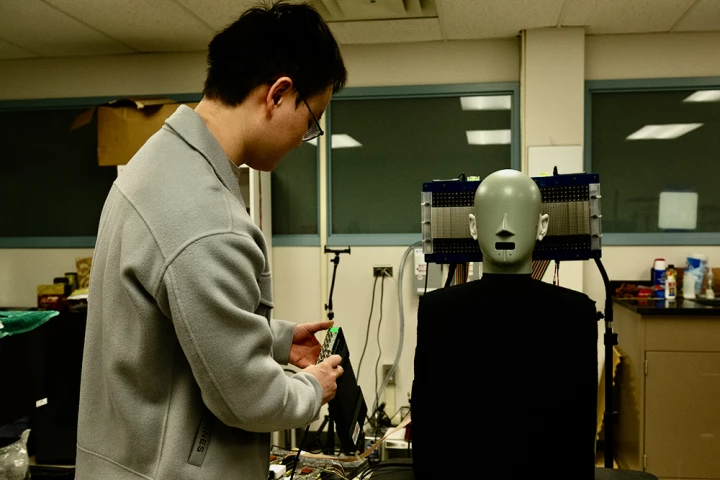Sound
-
With the SoundCam Go acoustic camera, you can be that person in your neigborhood social media group who can answer those “Where's that noise coming from?” questions whenever an unexplained sound is reported. And the device connects to your phone.
-
If you live in a noisy urban area, you're gonna love the sound of this. Researchers in Switzerland have developed a material that can dampen street noise while being four times thinner than similar-performing absorbers used in construction.
-
Pupil dilation and subtle facial changes in response to sound can reveal how severe tinnitus is. Through this, researchers have discovered a new way to objectively gauge how bad the condition is, more accurately diagnosing tinnitus and treating it.
-
Nobody likes being carsick, seasick or airsick, but what can you do to keep from getting that way? Well, according to a new study, simply listening to an audio tone for one minute might be all it takes to stop you from losing your lunch.
-
While headphones do provide an immersive listening experience, music is made to be heard through a good set of speakers in a room. Movengine's AirCore OWH headphones are made to simulate that experience, and I recently got to give the things a try.
-
Imagine being able to listen to music or other audio that no one else can hear, without having to wear headphones. Doing so is now possible via so-called "audible enclaves," which already exist in functional prototype form.
-
You may not think of fish as being noisy, but they can actually be a pretty vocal bunch. A new AI system is able to quickly identify specific fish calls within general reef noise, allowing scientists to better track local populations.
-
While there are already AI systems that generate sound effects to match silent images of city streets, an experimental new technology does just the opposite. It generates images that match audio recordings of streets, with uncanny accuracy.
-
In a crowd, background noise can make it hard to hear people talking. But soon we could be wearing headphones that use AI to filter out noise that’s more than a few feet away, creating a “sound bubble” that lets you focus on your own conversation.
-
Generative AI systems need to be fed huge amounts of often copyrighted data. Musicians could soon fight back with HarmonyCloak, a system that embeds data into songs that can’t be picked up by human ears but will scramble AI trying to reproduce it.
-
Vibration-absorbing, sound-damping materials such as sheets of rubber and expanded foam tend to be thick, bulky and soft. A new material is a big exception to that tendency, however, as it absorbs vibrations while staying stiff and thin.
-
You might not hear it, but rodents are known to speak to each other in voices so high-pitched that human ears can’t pick them up. Now scientists have found that these vocalizations might have a second purpose – they help them smell better.
Load More











